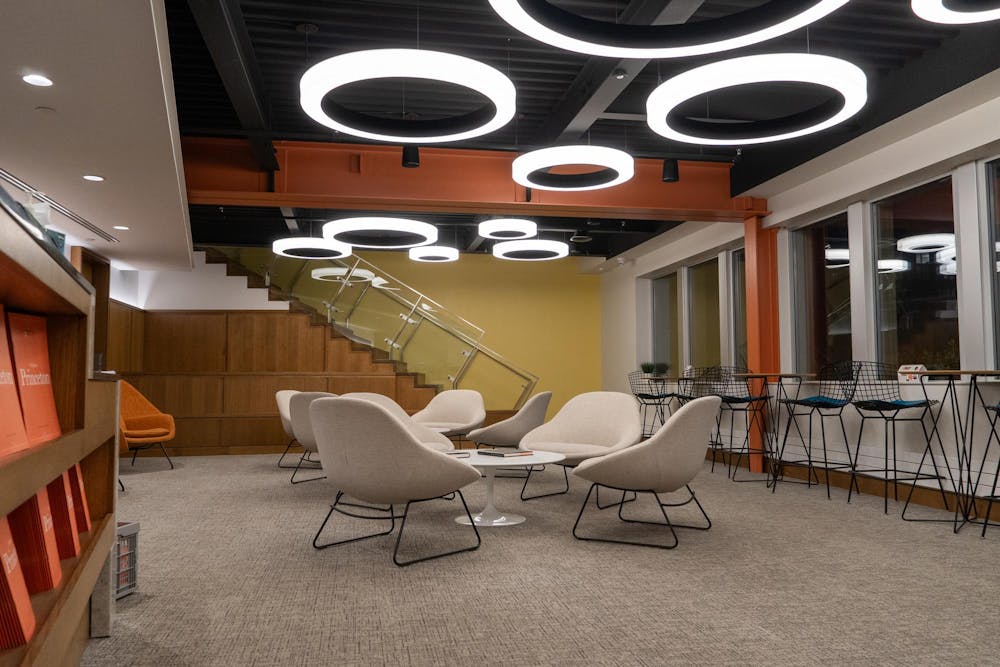After committing to Princeton as an international student, I felt uneasy about my arrival on campus. Moving thousands of miles away from home and entering a demanding academic environment were intimidating prospects. Luckily, I had someone to ease these anxieties: my Princeton Pal, then a first-year with a background similar to mine. From small talk about TV shows to questions about courses and workload, he made me feel reassured. To this day, we keep in touch.
Run by the Office of Admission, the Princeton Pals program matches admitted high school students with current undergraduates whose role is to provide guidance and answer questions about life on campus. Pairing is often based on academic interests or home states, creating a foundation upon which the Pals reach out to their prefrosh. While part of the program’s purpose is to convince undecided students to enroll, it also functions as a meaningful source of support for those already committed, as it did for me.
However, after arriving on campus, I learned that not all Pals were as helpful as mine. The opportunity is advertised to Princeton students as “low time commitment,” with the expectation of reaching out at least once for the reward of a free t-shirt. Several fellow first-years told me they were never contacted, even though all admitted students are matched with a fellow, according to University spokesperson Jennifer Morrill. The Pals’ task, however, is incredibly simple: be welcoming, informative, and reassuring. This is neither time-consuming nor demanding, yet it goes a long way in shaping a positive first impression of the Princeton community.
Though interactions with Pals may not lead to lifelong friendships, they can make a difference. As a first-year, it is easy to feel isolated and overwhelmed with uncertainty, even with the many support systems provided by the University. Older students can offer something no resource quite can: advice drawn from experience and shared without a barrier of formality.
Princeton Pals should take their roles more seriously. Free merch aside, they have the opportunity to make a prefrosh’s day, and choosing not to take it is a missed responsibility. Because of that, they should be held accountable after having signed up. A simple check-in system from the Office of Admission or a feedback form sent to the prefrosh could ensure that things are going well. These measures would not be meant to create rigidity, but to encourage consistency. After all, Princeton prides itself on its close-knit community — we should look to spread this culture long before move-in day.
Unlike other programs for prefrosh, Princeton Pals is well-designed. Contrast this to Summer Engagement Cohorts (SECs). This University-run series of online meetings with upperclassmen is designed to introduce various aspects of Princeton life and help new students meet one another before the semester begins. In my experience, however, these sessions often felt awkward and loosely organized. The one-on-one conversations with my Pal communicated the same information in a much more effective and personalized manner. I think SECs could be discontinued altogether, as Princeton Pals can easily accomplish what these meetings cannot.
Moreover, the impact of Princeton Pals has the potential to extend into the academic year. Forming connections with upperclassmen is one of the most exciting parts of the first-year experience. They create a sense of belonging and reliability, offering perspective when everything feels new and uncertain. However, these relationships are naturally quite rare — first-years tend to stick together. That is another reason why Princeton Pals matter: They can bridge the gap between classes and foster friendships that might not form on their own.
Prefrosh deserve Princeton Pals who care enough to show up and try hard. Both Princeton students and the administrators who run the program need to ensure it delivers the connections it promises.

Contributing Opinion Writer Ana Boiangiu ’29 is a prospective Mathematics major from Tulcea, Romania. She can be reached at ab5939[at]princeton.edu.









